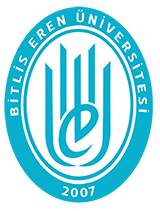| dc.description.abstract | The estimation of residual stresses is essential to prevent the catastrophic failures of the components used in the aerospace industry. The objective of this work is to predict the machining induced residual stresses with bagging, boosting, and singlebased machine learning models based on the design and cutting parameters used in the turning of Inconel 718 and Ti6Al4V alloys. Experimentally measured residual stress data of these two materials was compiled from the literature, including the surface material of the cutting tools, cooling conditions, rake angles, as well as the cutting speed, feed, and width of cut to show the robustness of the models. These variables were also grouped into different combinations to clearly show the contribution and necessity of each element. Various predictive models in machine learning (AdaBoost, Random Forest, Artificial Neural Network, K-Neighbors Regressor, Linear Regressor) were then applied to estimate the residual stresses on the machined surfaces for the classified groups using the generated data. It was found that the AdaBoost algorithm was able to predict the machining induced residual stresses with a mean absolute error of 18.1 MPa for the IN718 alloy and 31.3 MPa for Ti6Al4V by taking into account all the variables, while the artificial neural network provides the lowest mean absolute errors for the Ti6Al4V alloy. On the other hand, the linear regression model gives poor agreement with the experimental data. All the analyses showed that AdaBoost (boosting) ensemble learning and artificial neural network models can be used for the prediction of the machining induced residual stresses with the small datasets of the IN718 and Ti6Al4V materials. | tr_TR |














